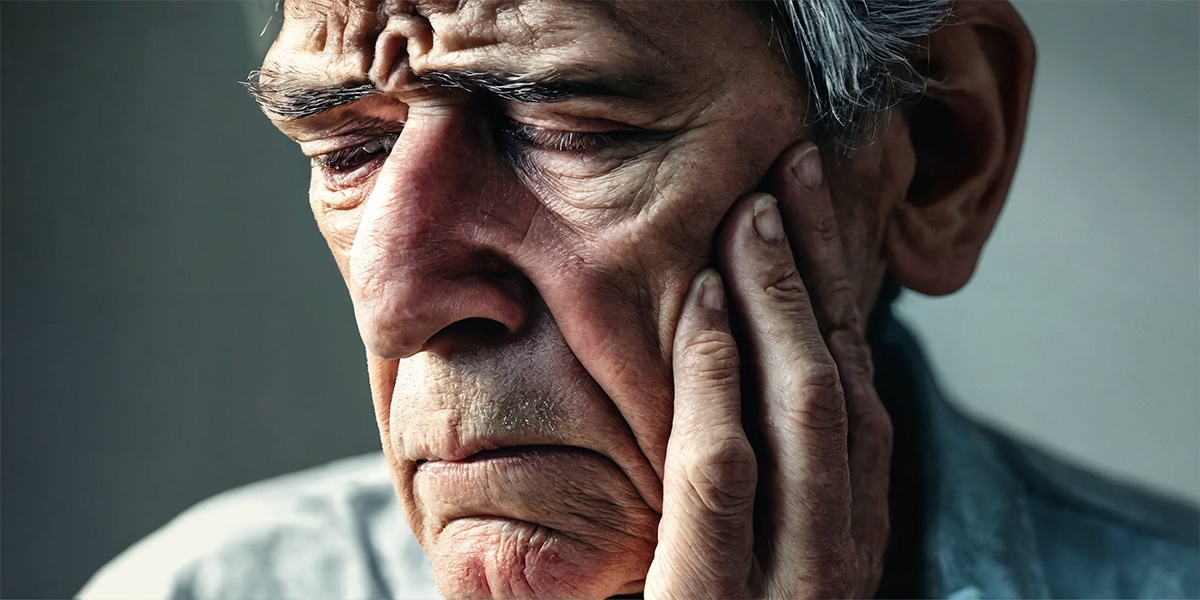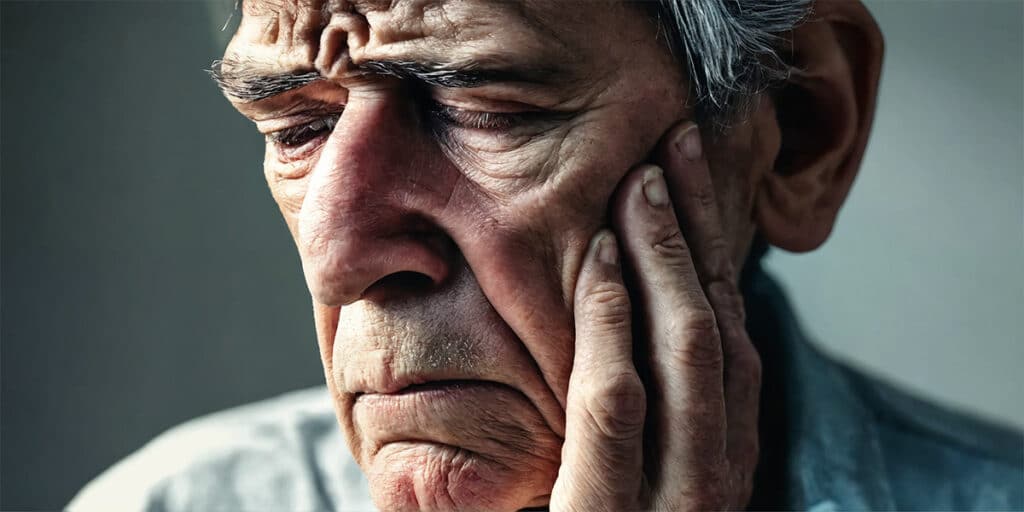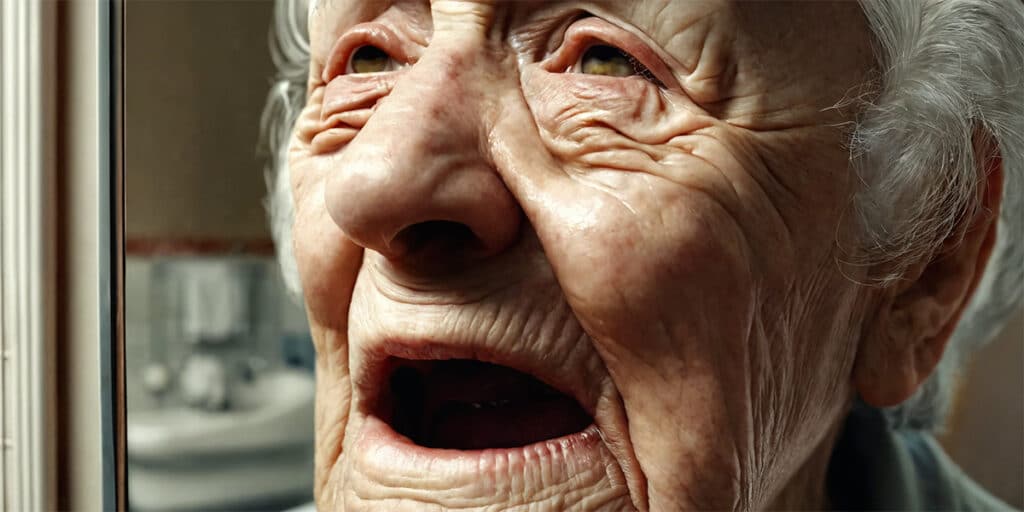Oral pain is a pervasive issue that affects millions worldwide, but its psychological impacts are often less discussed than the physical symptoms. Understanding how oral pain affects mental health and day-to-day life is crucial, especially as the population ages. This guide delves into the multifaceted psychological effects of oral pain, providing insights into managing these challenges effectively.
The Wide-Reaching Impact of Oral Pain
Oral pain is not just a physical sensation; it has deep psychological ramifications that can significantly diminish quality of life. Chronic oral pain conditions, such as TMJ disorders, severe gum disease, and recurrent mouth ulcers, can lead to anxiety, depression, and even social isolation. The constant discomfort can make concentration difficult, disrupt sleep, and impair one’s ability to eat and speak, which are fundamental to social interaction and personal well-being.
Understanding Oral Pain and Its Psychological Dimensions
Chronic oral pain is a silent ailment that, while often invisible to others, can be profoundly debilitating for those who suffer from it. Research reveals that persistent oral pain can significantly alter brain chemistry, affecting emotional regulation and leading to mood changes. This shift in brain function can manifest as emotional distress, disrupting daily life and exacerbating feelings of anxiety and depression.
Individuals grappling with chronic oral pain frequently report a heightened risk of developing mental health issues. The constant discomfort not only affects their physical well-being but also impairs their mental health by creating a pervasive sense of helplessness and a perceived loss of control over their own lives. This can quickly spiral into more severe mental health challenges, as the burden of chronic pain makes sufferers prone to isolation and withdrawal from social interactions, further deepening the impact on their psychological health.
Moreover, the stress associated with managing chronic pain can lead to significant behavioral changes. Sufferers may exhibit increased irritability, reduced tolerance for stress, and difficulty concentrating, all of which can strain personal and professional relationships. The cumulative effect of these changes often places individuals in a cycle of pain and psychological strain, highlighting the need for comprehensive approaches to management that address both the physical and emotional aspects of chronic oral pain.
The Psychological Impact of Oral Pain Manifestations
Oral pain is not merely a physical ailment; its effects can ripple through one’s psychological well-being, manifesting in various impactful ways. Understanding how these manifestations appear can help sufferers recognize their symptoms and seek appropriate treatment both for their oral condition and its psychological consequences.
Emotional Distress and Anxiety: One of the most immediate psychological impacts of oral pain is an increase in emotional distress. Individuals may experience heightened anxiety about their health, worrying excessively about the causes of their pain and the potential for serious underlying conditions. This anxiety can be exacerbated by visits to the dentist, especially if past experiences have been unpleasant or traumatic. The uncertainty about treatment outcomes can also lead to persistent nervousness and stress.
Depression and Mood Changes: Chronic oral pain can lead to significant changes in mood, often manifesting as irritability or sadness. Over time, the constant discomfort and disruption caused by oral pain can reduce a person’s ability to enjoy daily activities or engage socially, leading to isolation and depression. The reduction in quality of life and the feeling of helplessness to change one’s situation are key factors that contribute to depressive states associated with chronic pain.
Sleep Disturbances: Pain can severely disrupt sleep patterns, leading to difficulties in falling asleep or staying asleep throughout the night. The lack of restorative sleep not only worsens the perception of pain but also affects overall mood and cognitive function during the day. Sleep deprivation can result in fatigue, decreased alertness, and a diminished ability to cope with stress, compounding the psychological impact of the original pain.
Cognitive Impairment: Persistent pain can also lead to cognitive effects, commonly referred to as “brain fog.” Individuals may experience decreased concentration, forgetfulness, and a diminished ability to perform tasks that require mental focus. These cognitive impairments can affect personal productivity and even compromise safety, especially for seniors who may already be dealing with other age-related cognitive declines.
Social Withdrawal and Impaired Relationships: The discomfort and embarrassment from oral pain can cause individuals to withdraw from social interactions, particularly those that involve eating or speaking in public. This retreat can strain relationships with friends and family, as sufferers might avoid social gatherings and appear less communicative, further isolating themselves.
| Strategy | Type | Description | Benefits |
|---|---|---|---|
| Professional Guidance | Medical Consultation | Regular check-ups with healthcare providers to manage pain and monitor progress. | Improves pain management, enhances sense of control. |
| Pain Management Therapies | Treatment | Use of pharmacological treatments and physical therapies to reduce pain symptoms. | Directly reduces pain, improves quality of life. |
| Psychological Counseling | Therapy | Cognitive-behavioral therapy and other counseling methods to address emotional responses to pain. | Helps change pain perception, builds coping strategies. |
| Support Groups | Community Support | Engagement in groups with others experiencing similar issues. | Reduces feelings of isolation, provides emotional support. |
| Mindfulness and Relaxation Techniques | Self-Care | Practices like meditation, yoga, and deep-breathing exercises to manage stress and anxiety. | Enhances psychological resilience, reduces stress. |
| Education and Awareness | Information | Providing patients with knowledge about the causes and effects of oral pain. | Empowers patients, reduces anxiety through understanding. |
| Lifestyle Modifications | Adaptation | Changes in daily habits and environment to reduce stressors that exacerbate pain. | Improves daily functioning, reduces pain triggers. |
| Art and Music Therapy | Creative Therapy | Using artistic expression and music to soothe pain and manage stress. | Offers emotional release, enhances mood and well-being. |
| Dietary Adjustments | Nutrition | Adapting diet to include anti-inflammatory foods that can help manage pain levels. | Supports overall health, may reduce intensity of pain symptoms. |
Strategies for Managing Psychological Impact
Addressing the psychological impact of chronic oral pain involves a multifaceted approach that encompasses both medical and emotional support strategies. Here’s how individuals suffering from this kind of pain can manage its broader effects:
Regular Consultations with Health Professionals: Ongoing engagement with healthcare providers is crucial. Regular dental and medical check-ups can help in early detection and management of oral pain, preventing it from escalating into a more severe, chronic condition. Health professionals can assess the progression of oral health issues and adjust treatment plans accordingly, thereby mitigating both the physical and psychological impacts of the pain.
Pain Management Therapies: Modern medicine offers a variety of pain management techniques that can be tailored to individual needs. These include pharmacological treatments such as pain relievers and anti-inflammatory medications, as well as physical therapies that might involve heat treatment, cold compresses, or targeted physical therapy. These methods aim to reduce pain intensity and improve quality of life, thereby lessening the mental health burden associated with chronic pain.
Psychological Counseling: Chronic pain is not just a physical issue but a psychological one as well. Engaging in therapy sessions, particularly cognitive-behavioral therapy (CBT), can be immensely beneficial. CBT helps individuals develop healthier thinking patterns and coping strategies, altering the perception of pain and teaching pain sufferers how to better manage the emotional stress associated with it.
Support Groups: Connecting with others who are also experiencing similar health issues can be incredibly supportive. Support groups provide a platform to share experiences, tips, and emotional support, reducing feelings of isolation and despair. Knowing that one is not alone in their struggles can be a powerful aid in managing the psychological effects of chronic pain.
Mindfulness and Relaxation Techniques: Integrating practices such as meditation, yoga, and deep-breathing exercises into daily routines can significantly reduce stress and enhance psychological resilience. These practices help in focusing the mind, calming the body, and reducing the heightened stress response often associated with chronic pain. Regular practice can lead to improved emotional and physical responses to pain.
By adopting these strategies, individuals suffering from chronic oral pain can not only manage their condition more effectively but also mitigate the psychological impacts that often accompany long-term health issues.
Addressing the Psychological Impact of Oral Pain: Key Takeaways
The Empowerment Approach
Managing oral pain effectively requires more than just occasional treatment; it demands a comprehensive, proactive approach. Learning to manage pain with professional guidance not only helps in alleviating the physical discomfort but also empowers individuals to regain control over their lives. This empowerment is essential, as it transforms patients from passive recipients of healthcare into active participants in their healing processes. Taking charge in this way is crucial for mitigating the psychological impacts of chronic pain, as it fosters a sense of control and decreases feelings of helplessness.
The Community Support Strategy
Chronic pain can be isolating, but connecting with others in similar situations can provide significant emotional relief. Participating in support groups and community activities allows individuals to share their experiences, challenges, and strategies for managing pain. This interaction helps alleviate the isolation that often comes with chronic conditions and provides a network of support that understands the unique challenges of living with persistent pain. Community connections can be a lifeline, offering both practical advice and emotional solace.
The Holistic Health Method
Addressing both the mental and physical aspects of oral pain is essential for effective management. Incorporating psychological counseling and mindfulness practices into the treatment regimen allows for a more holistic approach to health care. Psychological counseling, including therapies like cognitive-behavioral therapy, helps individuals change how they perceive and react to pain, which can reduce the pain’s impact on their mental health. Simultaneously, mindfulness practices such as meditation and yoga can help manage the stress and anxiety associated with chronic pain, improving both mental and physical well-being.
By taking these approaches, individuals suffering from oral pain can do more than just manage their symptoms—they can improve their overall quality of life. This holistic strategy ensures that both physical discomfort and emotional distress are addressed, paving the way for a fuller, more satisfying life despite the challenges of chronic pain. Thus, patients are not merely surviving their condition; they are thriving, with a restored sense of well-being and empowerment.
Addressing the Psychological Impact of Oral Pain: Your FAQs Answered
What are the common psychological effects of chronic oral pain?
Chronic oral pain can lead to depression, anxiety, and a significant decrease in quality of life due to constant discomfort and the challenges it poses to daily activities like eating, speaking, and sleeping.
How can regular consultations with health professionals help?
Regular visits to healthcare providers help manage pain more effectively, prevent complications, and provide reassurance, which can alleviate anxiety and the feeling of helplessness associated with chronic pain.
What types of pain management therapies are available?
Pain management can include pharmacological treatments such as pain relievers or anti-inflammatory medications, as well as physical therapies like massage or heat treatment, which help reduce pain and improve function.
Why is psychological counseling recommended for managing oral pain?
Counseling, especially cognitive-behavioral therapy, helps patients develop coping strategies, manage stress related to chronic pain, and alter negative thought patterns that can exacerbate the perception of pain.
How do support groups aid in managing oral pain?
Support groups provide a platform for sharing experiences and coping strategies, reducing feelings of isolation by connecting with others facing similar challenges, which can be therapeutic and comforting.
Can mindfulness and relaxation techniques actually reduce pain?
Yes, techniques like meditation, yoga, and controlled breathing help manage stress and reduce the body’s pain response, improving emotional regulation and potentially lessening the intensity of pain experienced.
What role does education play in managing oral pain?
Educating patients about their condition helps demystify symptoms and treatment options, reducing anxiety and empowering them with knowledge to take active roles in their pain management strategies.
Are lifestyle modifications necessary for managing psychological effects of oral pain?
Yes, modifying lifestyle factors such as improving sleep habits, reducing stress, and adjusting dietary choices can significantly impact the overall management of chronic pain and enhance mental health.
How effective is art and music therapy in this context?
Art and music therapy provide outlets for expression and emotional processing, which are crucial for mental health, especially in individuals dealing with persistent pain. These therapies can improve mood and offer distraction from pain.
What dietary adjustments can help with chronic oral pain?
Incorporating anti-inflammatory foods like omega-3 fatty acids, turmeric, and ginger, and avoiding inflammatory foods like sugars and refined carbs can help reduce overall inflammation and potentially alleviate pain symptoms.
References
“The role of dental pain and psychosocial factors on the relationship between dental caries and oral health-related quality of life in children”: This study conducted by Cilio Antonio Ribeiro Junior et al., published in BMC Oral Health, provides data on the role of dental pain and psychosocial factors on the relationship between dental caries and oral health-related quality of life in children.
“Psychosocial oral health‐related quality of life impact: A systematic review”: This systematic review, published in the Journal of Oral Rehabilitation, discusses the psychosocial impact of oral health-related quality of life.
“Psychologic Impact of Chronic Orofacial Pain: A Critical Review”: This critical review, published in the Journal of Oral & Facial Pain and Headache, discusses the psychological impact of chronic orofacial pain.
“How Mental Health Affects Oral Health”: This article, published in Nature, discusses how mental health affects oral health.
“The Effect of Somatic Pain and Comorbid Mental Distress on Oral Health”: This study, published in Healthcare, discusses the effect of somatic pain and comorbid mental distress on oral health.








